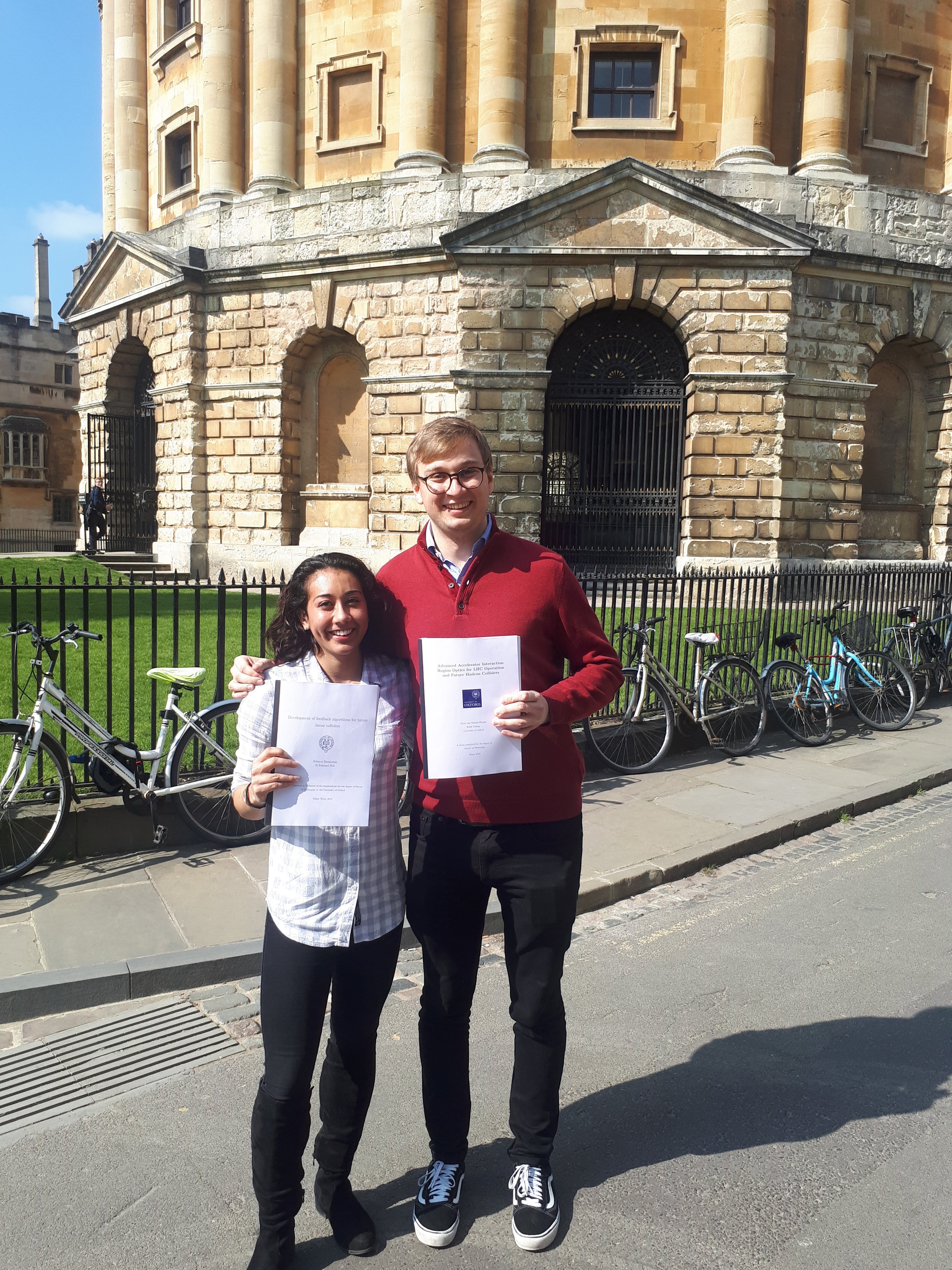
This year Rebecca Ramjiawan and Leon Van Riesen-Haupt, DPhil students at the university of Oxford, successfully and submitted and defended their theses. Both will go on to jobs within the field of particle accelerators, with Leon starting a CERN fellowship and Rebecca taking a post doc position as part of the AWAKE project at CERN.
Rebecca Ramjiawan joined the John Adams Institute as a DPhil student in 2015, following an undergraduate degree with the University of Oxford. Her DPhil thesis is concerned with low-latency feedback systems for beam stabilisation in future linear colliders, the title of which is ‘Development of Feedback Algorithms for Future Linear Colliders’. Her DPhil research includes the development of a prototype feedback system at the Accelerator Test Facility (KEK, Japan), which is a contribution towards the goal of stabilising the electron beam to the nanometre level. Another aspect of her research involves simulations of the performance of an intra-train feedback system designed for the interaction point of the International Linear Collider.
Léon van Riesenhaupt did his undergraduate studies at Imperial College London before joining the John Adams Institute in Oxford, Léon’s DPhil thesis explores ‘Advanced Accelerator Interaction Region Optics for LHC Operation and Future Hadron Colliders’ and introduces a novel method that uses the thin lens approximation to find the optimum final focus triplet for a given set of constraints. This method is used to improve the final focus section of the Future Circular Collider and the NICA collider and to design a complete interaction region for the High Energy LHC. The research also includes an improved ballistic alignment optic that was used for LHC commissioning as well as new methods and findings to improve the k-modulation measurements in the LHC’s interaction region.